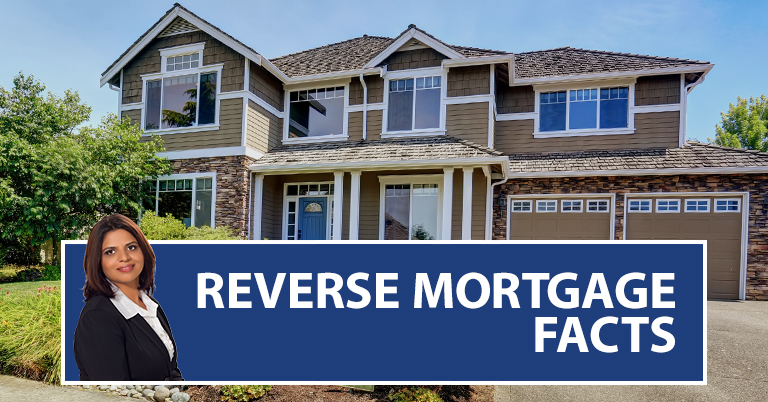Reverse Mortgage Facts
A reverse mortgage refers to a refinancing option which 55 years old and older homeowners can avail. If you are interested or considering taking up this loan option, then the information below will be helpful in your decision-making.
What’s the difference between a reverse mortgage and a traditional loan?
On a reverse mortgage, you are not required to make payments – not until you decide to move or sell your house. You can opt to pay the loan if you want to, however in doing so prepayment charges will be applied.
In the instance that you decide to move or sell your home, your loan will be repaid from the profits of the sale. After the loan amount has been repaid, the remaining money will be reverted to you and your estate.
How much money will be left in my home after I repay the loan?
Typically, homeowners will have more than 50% of the value of their house left after the loan has been repaid. This amount will be yours. The amount will depend on a number of factors such as the value of your house, the amount of your loan and the amount of time that has passed since the loan was availed.
Can I be forced to sell my home and repay the loan?
You cannot be forced to sell or move to repay your loan. You will still have complete ownership and control of your home. All you have to do is make sure your house in good condition as well as pay your property insurance and property tax.
What happens if my spouse or I pass away before the loan is paid?
The surviving spouse is not obligated to pay anything until he or she decides to move or sell the house. If you happen to be the sole borrower and you pass away, your loan will be repaid only if the estate sells your house. After repaying the loan, the remaining money will be given to your estate or heirs.
What’s the difference between a reverse mortgage and a home equity line of credit?
A home equity line of credit lets you make regular payments for the loan while a reverse mortgage, on the other hand, doesn’t oblige you to make payments for the loan until you decide to move or sell your house. This makes reverse mortgage very attractive to individuals who have a fixed income and can’t make regular repayments on loans.
Another notable difference is that with a home equity line of credit, you will be asked to repay anytime at the lender’s discretion. With a reverse mortgage, you will not be forced to repay your loan until you move or decide to sell your home.
What are the interest rates on a reverse mortgage?
Reverse mortgage interest will reflect the rates charged on other home equity loans. They are typically higher compared to rates charged for a line of credit since you aren’t required to make regular payments or repay the loan until you decide to move or sell the house.
Be sure to download my Guide To Reverse Mortgages and see if you are eligible.

